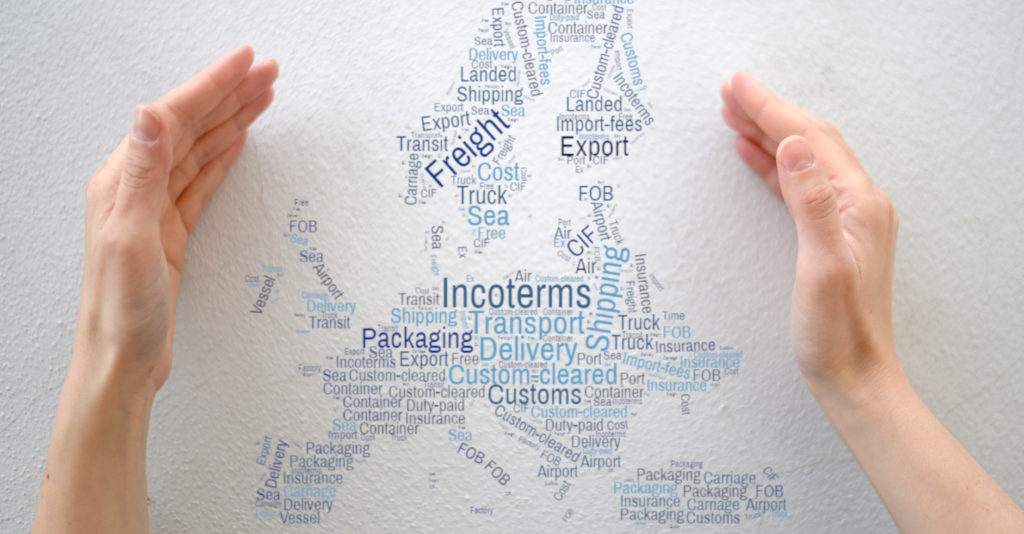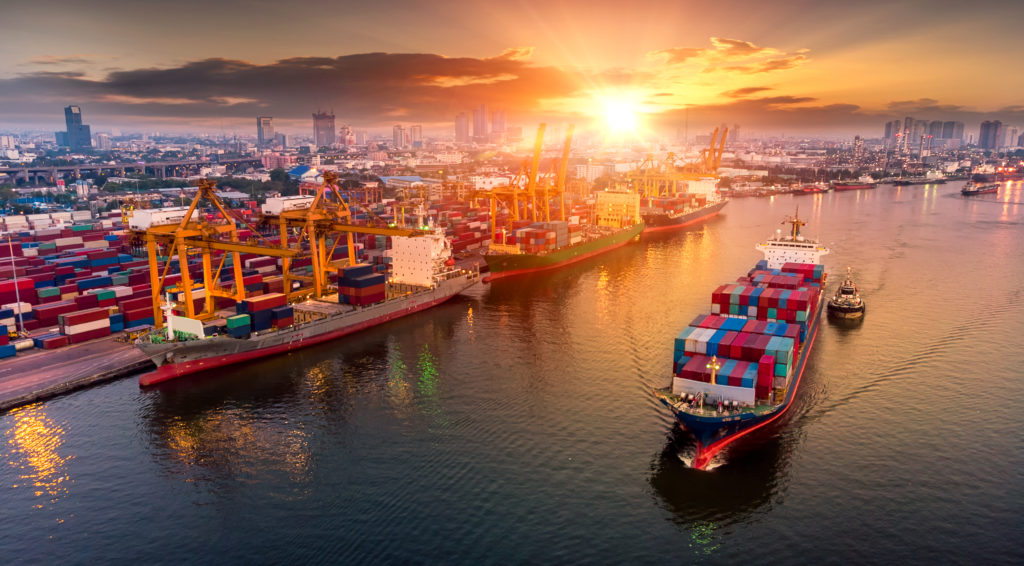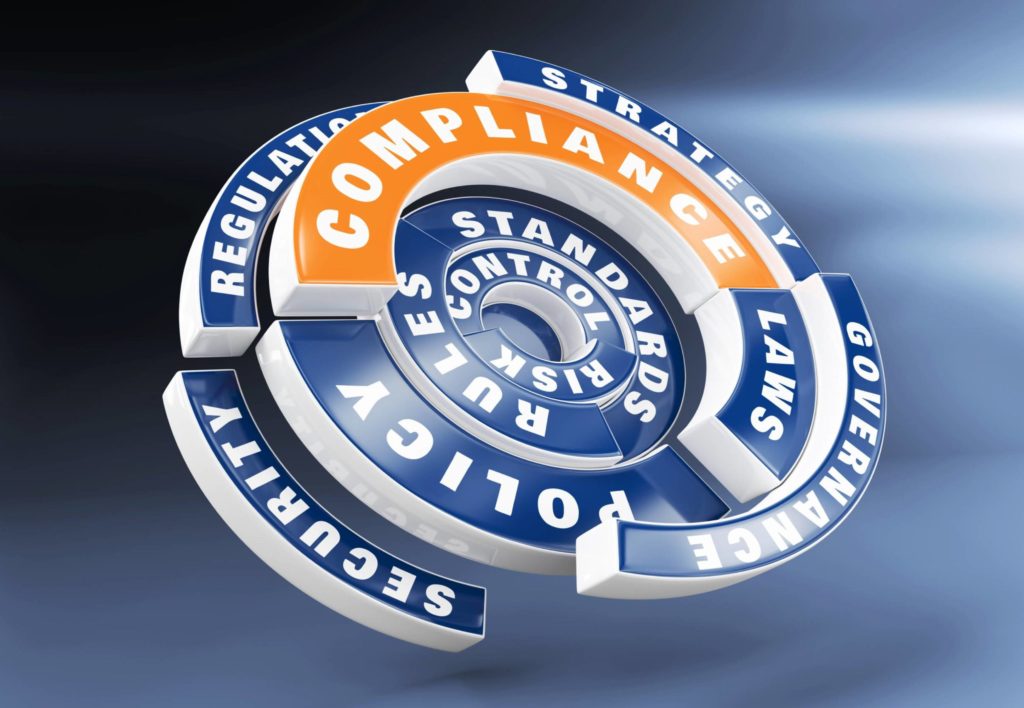Customs Broker
Customs Broker and Importer Identity Verification
Customs Broker
The importation of goods into the United States is complex and involves compliance with numerous requirements ranging from agricultural safety to intellectual property rights, to the payment of appropriate duties and fees. Customs broker is the only person who is licensed to transact customs business on behalf of others. Today’s customs broker is a federally licensed, highly regulated professional who offers many services to the international trade community.
Customs brokers serve many functions when acting on behalf of their clients, which include resident and nonresident importers. Customs brokers file information about their clients' merchandise and transactions with Customs and Border Protection (CBP). Customs brokers also track shipments, pay duties and fees to CBP, and keep current documents and records about the business they transact on behalf of their clients, all to help their clients comply with Federal import and export laws.
In-Depth Coverage: Trade Remedies
In-Depth Coverage: Customs Valuation
Who Needs a Customs Broker?
When goods are imported into the customs territory of the United States, they are subject to certain formalities involving CBP. In almost all cases, the goods are required to be “entered,” that is, declared to CBP, and are subject to detention and examination by CBP officers to ensure compliance with all laws and regulations enforced or administered by CBP.
Pursuant to the Customs Modernization Act, it is now the responsibility of the “Importer of Record” to use “reasonable care” to “enter,” “classify”, and “value” the goods, and provide any other information necessary to enable CBP to properly assess duties, collect accurate statistics, and determine whether all other applicable legal requirements are met. These requirements can be complex. The “importer of record” is either the owner or purchaser of the merchandise or, when appropriately designated by the owner, purchaser, or consignee of the merchandise, a person holding a valid license as a customs broker.
In order to avoid potential problems in the clearance of your merchandise, CBP strongly recommends that you familiarize yourself with CBP policies and procedures prior to actually importing/exporting your goods. You should also be aware of any entry requirements specific to the particular commodity you are importing/exporting, including those of other federal agencies.
To meet their responsibilities, importers may employ experts within their organizations or seek advice or services from outside experts such as customs brokers, attorneys who specialize in customs matters or consultants. Of these outside experts, only customs brokers may actually prepare and file entry documentation, because the preparation and filing of entry documentation constitutes “customs business” which, by statute, may be performed on behalf of others only by a licensed customs broker.
In-Depth Coverage: Country of Origin
- Country of Origin of Imported Merchandise
- Customs Ruling: Country of Origin
- Country of Origin: Food Products
- Country of Origin: Chemical and Pharmaceutical Products
- Country of Origin & Country of Manufacture: CBP vs. FDA
- Country of Origin: Substantial Transformation or Country of Assembly Test
- Country of Origin and Free Trade Agreement
- Country of Origin and Section 301
In-Depth Coverage: Marketing and Advertising Compliance
- Federal Trade Commission (FTC) Advertising Rules
- Made in USA Standard
- FTC Regulation on Environmental Claims
- Adverting and Marketing on the Internet
- Label Claims for Conventional Foods and Dietary Supplements
- Dietary Supplement Advertising: What is FTC's Truth-in-Advertising Law?
- USDA Country of Origin Labeling (COOL)
- FTC Rules & Regulations on Food Advertisement
Power of Attorney and Importer Identity Verification
Before a customs broker may transact customs business on behalf of a client, the broker must obtain a valid power of attorney (POA). A POA authorizes the customs broker to become that client's agent and to prepare and file the necessary customs documents on their behalf. In the customs broker context, a valid POA is the written appointment of the broker as the true and lawful agent of the principal (i.e., client) allowed to transact customs business on behalf of the principal.
On February 24, 2016, Congress enacted the Trade Facilitation and Trade Enforcement Act of 2015 (TFTEA), Section 116, which amended section 641 of the Tariff Act of 1930. Section 116 of TFTEA, Customs Broker Identification of Importers, specifically requires the Secretary to promulgate regulations setting minimum standards to:
To implement Section 116 of TFTEA, CBP released on August 14, 2019 in the Federal Register a notice of proposed rulemaking that would amend the CBP regulations to require customs brokers to collect certain information from importers to enable the customs brokers to verify the identity of importers, including nonresident importers.
According to the Notice, CBP is proposing to add a new section, 111.43, entitled Importer identity verification, to title 19 of the CFR to establish the identity collection criteria and to create a required verification process of importer and nonresident importer clients. These proposed regulations set forth the minimum requirements a customs broker must meet to verify the importer's identity prior to transacting customs business on behalf of the importer or nonresident importer client.
In-Depth Coverage: Importing Medical Device
In-Depth Coverage: Importing Food Products
- What is FDA Food Safety Modernization Act (FSMA)?
- Prior Notice of Imported Foods
- FDA Food Facility Registration
- Risk-Based Preventive Controls for Human Food
- Risk-Based Preventive Control for Animal Food
- Protect Food against Intentional Adulteration
- What is Foreign Supplier Verification Program (FSVP)?
- What is FSMA Produce Safety Rule?
Minium Information That the Customs Broker is Required to Collect from the Client
The CBP proposed rule identifies the information that the customs broker is required to collect from the client at the time the POA is obtained by the broker. At the time the POA is obtained by the broker, the broker must collect, at a minimum, the following information from the client, if applicable:
(1) The client's name;
(2) For a client who is an individual, the client's date of birth;
(3) For a client that is a partnership, corporation, or association, the grantor's date of birth;
(4) For a client that is a partnership, corporation, or association, the client's trade or fictitious names;
(5) The address of the client's physical location (for a client that is a partnership, corporation, or association, the physical location would be the client's headquarters) and telephone number;
(6) The client's email address and business website;
(7) A copy of the grantor's unexpired government-issued photo identification;
(8) The client's Internal Revenue Service (IRS) number, employer identification number (EIN), or importer of record (IOR) number;
(9) The client's publicly available business identification number (e.g., Data Universal Numbering System (DUNS) number, etc.);
(10) A recent credit report;
(11) A copy of the client's business registration and license with state authorities; and
(12) The grantor's authorization to execute power of attorney on behalf of client.
The term “grantor” is the individual executing the power of attorney on behalf of the client.
For further information please refer to the proposed regulations “Customs Broker Verification of an Importer's Identity”
For prospective clients, customs brokers would be required to comply with proposed 19 CFR 111.43 as of the effective date of the final rule. A customs broker would not be permitted to begin transacting customs business on behalf of that client until the broker collected the required information and verified the client's identity. The broker would also be required to reverify the client's identity on an annual basis.
For existing clients with a POA issued by a partnership, customs brokers would have two years from the effective date of the final rule to verify the client's identity and to update the necessary identification and verification records. For all other existing clients, customs brokers would have three years from the effective date of the final rule to verify the client's identity and to update the necessary identification and verification records. Brokers would have to reverify the client's identity on an annual basis after the initial verification.
Customs Clearance and Import Requirements
- Entry of Imported Merchandise
- What is Section 321 Entry?
- What is Automated Commercial Environment (ACE)
- What is an Automated Broker Interface (ABI)?
- Who is Ultimate Consignee?
- What is Non-Resident Importer Program?
- Country of Origin of Imported Merchandise
- What is the Country of Assembly?
- What is the FDA's Country of Manufacture?
- Marking of Country of Origin on U.S. Imports
- What is Customs Bond?
- Reconciliation Prototype and Bond Rider
- Who Needs a Customs Broker?
- What is Customs Ruling Program?
- Classification of Imported Goods
- How is imported merchandise appraised?
- What are Import Quotas?
- What are Trade Remedy Duties?
- Antidumping Duty (AD) and Countervailing Duty (CVD)
- What is Foreign Trade Zone (FTZ)?
- What is Importer Security Filing (ISF)?
- What is Temporary Importation under Bond (TIB)
- What is In-Bond Process?
Quick Link To U.S. Customs & Import Requirements
FDA-Regulated Products and Import Requirements
- What is Food Safety Modernization Act (FSMA)?
- Prior Notice of Imported Foods
- Food Facility Registration
- Risk-Based Preventive Controls for Human Food
- Risk-Based Preventive Control for Animal Food
- Standards for the Growing, Harvesting, Packing, and Holding of Produce for Human Consumption
- What is Foreign Supplier Verification Program (FSVP)?
- Protect Food against Intentional Adulteration
- FDA Regulated Product in Foreign Trade Zone (FTZ)
- Entry Review Process for FDA Regulated Products
- Country of Origin VS Country of Manufacture
- Foods Regulated by FDA or USDA: What is the Difference?
- Label and Labeling Claims for Conventional Food and Dietary Supplements
- What is USDA Country of Origin Labeling (COOL)?
- Import for Export of FDA Regulated Products
- FDA Regulated Products in Personal Baggage or Sending by Mail or Courier
- International Mail Facility (IMF) and FDA Regulation
- Importing Biological Product Regulated by CBER
- Importing Cosmetics and Voluntary Cosmetic Registration Program (VCRP)
- Importing Drugs into the U.S.
- Importing OTC Drugs into the U.S.
- Importing Veterinary Drugs into the U.S.
- Importing Tobacco Products into the U.S.
- Importing Medical Devices into the U.S
- Importing Food Products into he U.S.
- Importing Radiation-Emitting Products into the U.S.
Guidance on customs & logistics solution for traditional and e-commerce importers and exporters
Importer Security Filing (ISF)
An ISF is required when cargo (ocean only) laden on vessel at a foreign port is destined for shipment to the U.S. Under ISF rule, some importing information and details regarding cargo must be transmitted to the CBP at least 24 hours before goods are loaded onto the vessel.
Customs Clearance
All goods imported into the U.S. are required to be declared to CBP. Our customs broker will help you stay in compliance with customs laws and regulations and clear your goods quickly and efficiently with our electronic Automated Commercial Environment (ACE) and Automated Broker Interface (ABI) Single Window System.
Freight Forwarding
Looking for a freight forwarding partner? To move your cargo from its current location through customs to its final destination we will partner with you to find the best way for your business. Whatever your transportation, logistics or customs clearance needs, we will do our best to customize a solution for your needs.
Warehousing & Distribution
Our warehouse facility offers great potential for serving as a regional hub with over 145,000 SF storage capacity close to Los Angeles Airport & Los Angeles/Long Beach Sea port. With our extensive experience in freight services, your import/export cargo will be handled quickly and effectively.
Section 321 Entry
Section 321 entry allows importing free of duty and tax for shipments imported by one person on one day having a fair retail value in the country of shipment not more than $800. We provide our resident and non-resident clients with dedicated ACE eManifest solutions for Section 321 entry of all modes of transportation.
E-Commerce
The Internet has made it easy to find and purchase items from almost anywhere in the world. Our e-commerce experts will help you find the right solution for your international transportation, customs clearance, and delivery to your final destination. We also provide value-added repackaging, warehousing and distribution services.
Non-resident Importer Program
If you want to sell your products in U.S. marketplaces, but you are a business owner located outside of the U.S. and do not have an entity or presence in the U.S., you need to be established as a Foreign Importer of Record before your products can be imported into the U.S. We can help you.
Design your own logistics
To move your cargo from its current location through customs to its final destination we will partner with you to find the best way for your business.




















